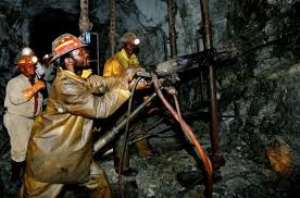
The African political landscape is rapidly changing as countries undergo extensive legislative reform aimed at driving increased revenue from the mining sector, a leading Australian lawyer said today.
Addressing the first day in Perth today of the Paydirt 2015 Africa Down Under Conference, DLA Piper Australia Partner, Mr David Nancarrow, said the reforms were encouraging new investment in a growing number of African nations – some of whom have struggled historically to attract new investors.
“A large number of African countries are undergoing extensive legislative reform in the mining sector,” Mr Nancarrow said.
“The objective of those governments is to increase revenue for their country from the mining sector, as well as provide an attractive environment for direct foreign investment,” he said.
“These governments are now attracting new investors as a direct result of the changes they have made to the legislative landscape of their countries.”
Countries that have undertaken the reform process include Kenya, Senegal, Ethiopia, the Democratic Republic of Congo, Tanzania and Mali.
Mr Nancarrow said most of these countries were following “common trends” which included improving state participation in projects, tax concessions for project developers, infrastructure support, government transparency and local development support.
He said another key factor to the legislative reforms was introducing systems that avoid unnecessary delays – a new regime that investors found prudent and attractive.
Mr Nancarrow is an experienced lawyer who focuses on project delivery strategies across various engineering and construction projects.
He is also a qualified civil engineer who worked in the engineering construction industry as an engineer and project manager for eight years prior to practising law, so is well experienced in major infrastructure projects both internationally and domestically.
“Many jurisdictions are now including provisions to improve state participation in mining projects, which on average, will be between 5% and 15%,” Mr Nancarrow said.
“Further, companies willing to invest in mining infrastructure in these countries are being offered a range of tax incentives, including for transport, power and water, as well as opportunities to ‘monetize’ after mining,” he said.
“Legislation that is clear and certain is essential to encourage renewed investment in Africa – especially in the many jurisdictions that have struggled historically to do so.
“Countries that do not have such legislation will fall behind.
“Now is the time for these countries to follow the leader.”




 2024 election: Don’t be scared; we're ready to maintain law and order – Dampare ...
2024 election: Don’t be scared; we're ready to maintain law and order – Dampare ...
 NDC to officially outdoor Prof Jane Naana as 2024 running mate on April 24
NDC to officially outdoor Prof Jane Naana as 2024 running mate on April 24
 Power outages: Always give 3 days prior notice — PURC to ECG
Power outages: Always give 3 days prior notice — PURC to ECG
 NDC's quest to wrestle power from NPP goes beyond partisanship; it’s a national ...
NDC's quest to wrestle power from NPP goes beyond partisanship; it’s a national ...
 ECG board members slapped GHS5.8 million fine by PURC for failing to alert publi...
ECG board members slapped GHS5.8 million fine by PURC for failing to alert publi...
 I never left NPP, they 'sacked' me for attending Alan's programme; even a $100mi...
I never left NPP, they 'sacked' me for attending Alan's programme; even a $100mi...
 Fuel prices go up today
Fuel prices go up today
 Anti-gay bill: Your stance serves no purpose; either you actively advocate for t...
Anti-gay bill: Your stance serves no purpose; either you actively advocate for t...
 Tension brews as NPP Seattle clashes with national leadership over parallel chap...
Tension brews as NPP Seattle clashes with national leadership over parallel chap...
 Anti-gay bill: You've done nothing in Ghana to prove you're against LGBTQ+; ther...
Anti-gay bill: You've done nothing in Ghana to prove you're against LGBTQ+; ther...
